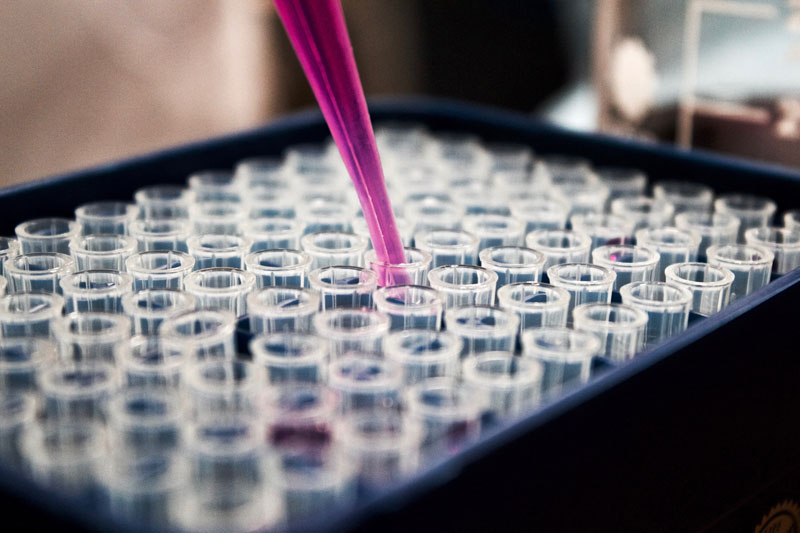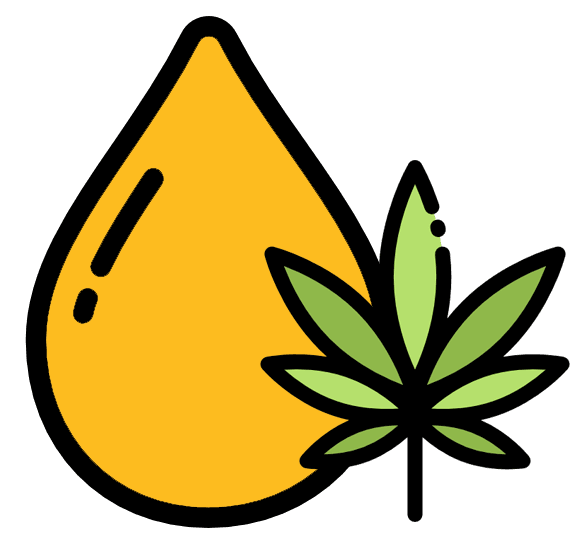Drug Tests and CBD
During drug tests, cannabidiol (CBD) likely won’t show up because cannabidiol generally isn’t screened. However, CBD oil (specifically, full-spectrum products) does contain trace THC amounts (less than 0.3%). For the most part, these trace amounts won’t trigger a positive result if CBD oil is consumed at recommended servings. That being said, if an individual’s system contains a certain amount of THC, the drug test may flag a positive.
A CBD product that is hemp-derived could potentially flag a THC test result as positive. This risk is higher when untested and unregulated products are used, as they may contain unreliable cannabinoid levels.
Zero
THC
THC-Free CBD Products
If you want to avoid having any THC in your system, have a look at our CBD-isolate products. Our full-spectrum, all-natural CBD oil undergoes a purification process that filters out plant compounds and materials, save for CBD. Our CBD-isolate products are 99% pure, making them an ideal option for those who don’t want any traces of THC in them before a drug test.
Drug Testing Purposes
The reason drug tests are issued is to make sure competitors and employees are not using prescription or illegal substances. Sometimes called “drug screening,” drug tests might involve an assessment of compounds in your hair, saliva, urine, or blood.
Instead of testing for impairment, drug tests detect historical use. Substances might be found long after consumption based on several factors, including substance type, consumption, the amount used, and consumption frequency.
Many drug tests screening for cannabis use don’t seek out CBD, nor do they look for its metabolites. Instead, cannabis drug tests typically seek out the existence of THC (tetrahydrocannabinol), which is the active ingredient in marijuana. These tests also look for THC –COOH (11-nor-delta9-carboxy-THC), one of its prime metabolites.
Drug tests usually screen for other substances besides cannabis. More often than not, they look for methamphetamine, barbiturates, cocaine, alcohol, or opioids, among other drugs.

Why would I fail a drug test if there is barely any THC in the CBD oil?
Each kind of drug test has its own detection threshold. For example, hair tests are developed to screen for chronic substance abuse. As such, if there are only trace THC amounts in the CBD oil you take, and you are not taking any more than the recommended dosage, then it probably won’t be detected on your hair test. The standard CBD percentage in our oils is 0.3%. Be mindful that CBD is not regulated, so you have no way of knowing how much is truly in a bottle, or what specifically it contains.
If you are subjected to an oral fluid or urine test, the thresholds for detection are lower. Based on several parameters (which includes how much is consumed, the frequency of usage, and your body’s composition), trace THC amounts could possibly accumulate, and therefore be detectable. This is unlikely, but possible.
How Long Will CBD Be Detectable For?
Not very many studies have been performed to determine the amount of time CBD stays present in our systems. As such, it is difficult to say precisely the length of time CBD is detectable in our bodies. The few studies that have been performed do provide some insight, though.
After CBD oil (that is hemp-derived) is consumed, the levels of CBD within your bloodstream will rise, albeit temporarily. CBD is carried by your blood from one part of your body to another, letting cannabinoids engage with several cannabinoid receptors, stimulating the endocannabinoid system in your body.
CBD (in addition to the metabolic by-products it comes with) happens to be lipid-soluble, as with most cannabinoids. As such, they can accumulate inside of your body’s fat reserves before gradually being released. At some point, each compound gets eliminated.
According to a study conducted in 1991, CBD was detected in bloodstreams of participants who consumed large CBD servings for six consecutive weeks 7 days after the servings were cut off. Researchers believed that the CBD’s half-life (when 50% of CBD is purged from our bodies) was between three and five days. However, the compound was virtually undetectable after a week without CBD intake.
The research suggests that CBD won’t be apparent in your body’s system after about seven days.
Be mindful that the amount of time CBD can be detected will depend on a number of aspects, including the following:
- Your metabolism and body weight
- If you consume food beforehand
- How often you use CBD
- The way CBD is consumed
- Your serving size
